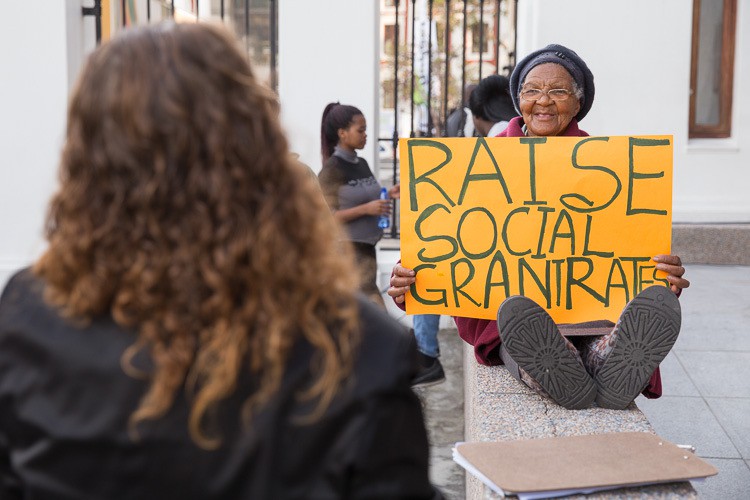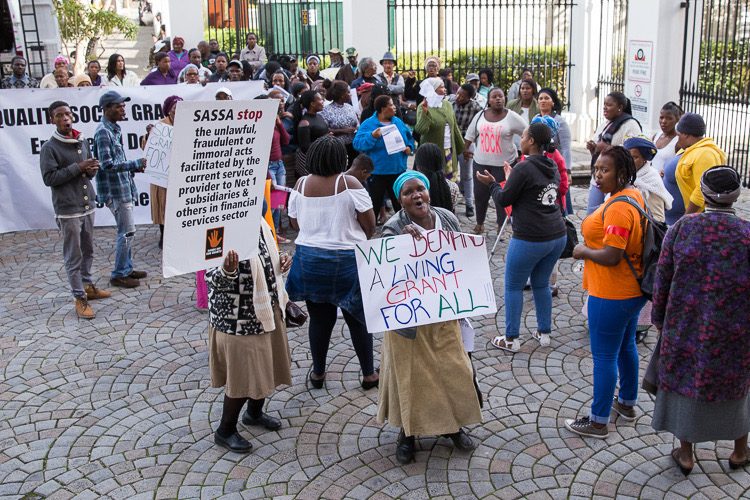
Maria Skonana from Site C in Khayelitsha is 92 years old and receives an old age grant of R1,600 per month, but between R200 to R400 is deducted from her account monthly. Part of this is for airtime, but she does not own a cellphone. Photo: Ashraf Hendricks
25 May 2017
About a hundred members of civil society organisations and social grant recipients gathered outside the gates of Parliament on Thursday to demand an end to illegal deductions, outsourcing and an increase to the amount of grant money paid out. Protesters sang struggle songs, and screamed “Dlamini Must Fall” outside, referring to Minister of Social Development Bathabile Dlamini.
The picket was held ahead of the Department of Social Development budget vote in Parliament in the afternoon. Social grant payments are administered for the South African Social Security Agency (SASSA) by a subsidiary of a company called Net1. But other Net1 companies target social grant recipients by selling them loans, airtime and other products. There has been much criticism of Net1 and several adverse court rulings with respect to the way social grant payments are administered. Dlamini has been criticised for the way she has handled the Net1 tender, including failing to meet a Constitutional Court order that Net1 be removed. (On Wednesday Net1 announced that their controversial CEO Serge Belamant will take early retirement at the end of May.)
Jo-Ann Cupido, a member of an organisation called Housing Assembly and a social grants recipient, said that grant beneficiaries are facing major problems. Cupido said this is not a favour done for us: “This is our right to have a grant”. Cupido lives in Blikkiesdorp and has four children but only receives one child grant as three of her children are over the age of 18. “The money is not enough,” she said. It is not enough for the “school fees, for the food, for the clothes. We can’t afford even a R13/R14 bread.”
Joyce Malebo, a social grants beneficiary from Gugulethu receives a single child grant of R380 per month. She has two children, but one of them is too old to receive a grant. Malebo is not sure why money is being deducted from her grant every month. She has tried to cancel her card against which the deduction is made but has found the process daunting.
Nandi Vanga-Mgijima, a researcher at the International Labour Research and Information Group (ILRIG) says that social grants are not enough and that people turn to loans with exorbitant interest rates. When asked whether people have to agree to these loans, Nandi said the majority of working class people are unemployed and desperate.
A memorandum handed over to Acting Director General of Social Development, Vilakazi Nelisiwe, described the outsourcing of social grant payments as a “national crisis in which illegal deductions are endemic and the poor are targeted by reckless lenders”. The memo called for recipients’ financial information to be protected, and it also blamed Dlamini for the “social grants crisis”. It called upon her to resign.
